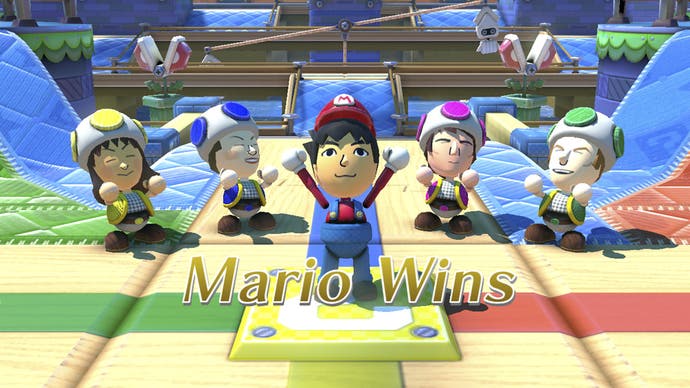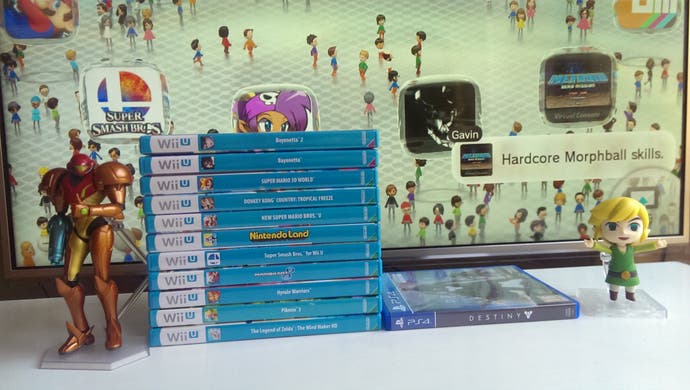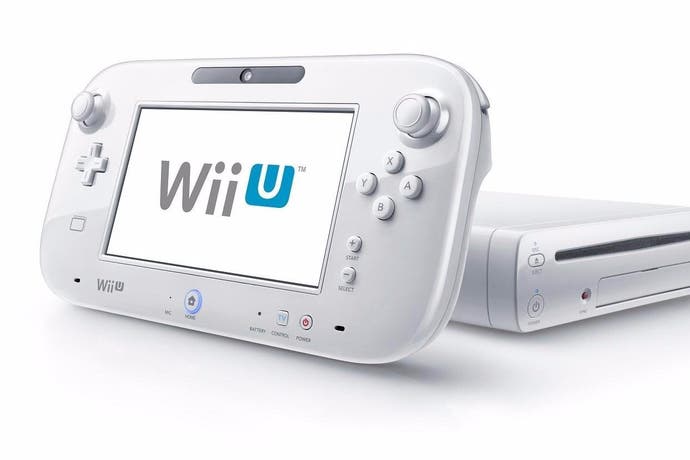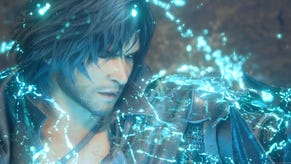With the announcement of the NX, Nintendo admits defeat with the Wii U
Farewell, Wii hardly knew U.
What to make, then, of yesterday's Nintendo announcement? A certain amount of shock met the news that Nintendo was partnering with DeNA and making the move into mobile gaming development, but it could hardly be called a surprise. This is a company, after all, that used to run a taxi firm as its playing card business sprawled outwards in the 60s, and has a proud history of the unexpected. But even though yesterday's news marks perhaps the most significant shift since Nintendo moved out of the arcades and into the home with the NES, it's a move born of nothing more than common sense.
In Japan, the console market is flatlining, while mobile gaming is booming. What's more, there's not the slightly prissy attitude held by more traditional audiences towards the mobile market in Japan: the idea of a hardcore game on mobile is something that's more readily embraced, and Nintendo joining forces with one of the biggest players in that space not only makes sense, it's perhaps somewhat overdue.
What the partnership means for western audiences is a little fuzzier. The timing, location and style of yesterday's announcement suggested this was very much a Japanese deal for the Japanese market, and we may not see a knock-on effect over here until well after those first Nintendo-developed games find their way onto handsets. Indeed, the biggest concession made to those tuning in from afar was the announcement of the NX, the next dedicated games machine Nintendo has been leaving clues about for well over a year, and which we already have a decent handle on.

It was a necessary move to calm the inevitable uproar in the west that Nintendo was shifting its development teams over to mobile gaming, but if yesterday's conference was full of unanswered questions, there's one very real thing to be taken from it: Nintendo has now quietly reserved a place in the graveyard for the Wii U. Yesterday's announcement was an affirmation of Nintendo's commitment to dedicated gaming platforms, but also an admission of defeat over its last effort.
It's a little too early to be writing the obituary for Nintendo's current home console, but its days have clearly been numbered, its timeline etched into its tombstone. If the NX is being prepared for a full reveal at E3 next year, there's the possibility of launch towards the end of 2016. Even pessimistically, we can expect to see it some time in 2017, clocking the Wii U's time on the frontline between four and five years. That would be comfortably the shortest lifespan of any of Nintendo's major home consoles.
So often, the most fondly remembered consoles have the most tragic lifelines, and while the Wii U has already outlasted the Dreamcast's glorious two years on this mortal coil, it's destined to take its place alongside Sega's doomed console. They're part of our own 27 Club: the Kurt Cobains and Brian Jones of the gaming world.
The reasons behind the Wii U's demise are commonly accepted: after going big and broad with great success with the Wii, Nintendo fell back on a hardcore market that had moved on from Mario. It was a marketing disaster from day one, too, a console searching for a purpose from its first bizarre reveal at E3 in 2010, and one that to this day still hasn't found one. The low-spec gamble that paid off with the Wii was never backed up with an idea to sell it: the GamePad has been a flop, barely supported beyond a handful of games at launch and a run of new, smaller experiments created under the guidance of Shigeru Miyamoto launching later this year that will be too little, too late.
It's going to make for an odd E3 later this year, where Nintendo must still show support for a console it has effectively acknowledged is a failure while being unable to acknowledge the elephant in the room that will be the NX. Zelda could well be the last big first-party game - and, who knows, maybe even the first on the NX, Twilight Princess-style - and if Nintendo has any sense it will have moved most of its big-ticket development teams, the likes of Retro and Tokyo EAD, on to its new hardware concept.
Such an odd send-off for such a wonderful machine. For all of its failings, the Wii U has consistently hosted the best games this generation has had to offer so far. Its appeal comes down in part to its outsider status, of course - everyone loves the underdog, especially one hobbled with something as unwieldy as a GamePad around its neck and with an adorable little limp - but the adoration thrown its way comes down mostly to its incredible software library.

The Wii U is host to one of the best hardcore 2D Mario platformers in New Super Mario Bros. U and its Luigi-themed follow-up, one of the best 3D Mario platformers in 3D World, and quite simply the best Mario Kart to date. It's home to the brilliant Pikmin 3, the eccentric and loveable Captain Toad as well as strange offshoots such as Hyrule Warriors. It's got multiplayer gaming at its best in Nintendo Land, and it's got Platinum Games at its finest, and its most experimental, in Bayonetta 2 and The Wonderful 101. Splatoon, meanwhile - what could well be the only new Nintendo IP launched in the Wii U's lifespan - looks to be a fitting tribute to this most peculiar of consoles. The Wii U is often compared to the GameCube, another Nintendo console that fell flat commercially but went on to become a cult favourite, and already I think it has the better library of the two.
And while the hardware might have faltered, there are still ideas within the Wii U worth savouring, chief among them the Miiverse. It can be occasionally sparse, your friends-list having moved on elsewhere, but in the chatter around games, the words of encouragement from strangers and the lavish fan-art sketched out with a stylus, there's the constant reminder of the power and warmth gaming communities are capable of. It's a reminder, too, of how Nintendo went about remedying the hostility of online gaming, even if the numbers were never there for its grand innovation to ever truly pay off.
The Wii U's catalogue and concepts like the Miiverse are also a reminder that, for all of the console's failings, Nintendo has been as effective a force as ever on other fronts, churning out a succession of great games for the faithful few who have stuck with them. If it can bring that work-rate, craftsmanship and imagination to its new mobile venture, and bring some of the Miiverse spirit into the cross-platform network that's part of the DeNA deal, then maybe it'll be time for some of us to start playing games on our handsets again. If it can bring some of that to its new hardware and learn from the many mistakes of the Wii U, then the next few years are going to be very exciting indeed.




-3-31-23-screenshot.png?width=291&height=164&fit=crop&quality=80&format=jpg&auto=webp)




